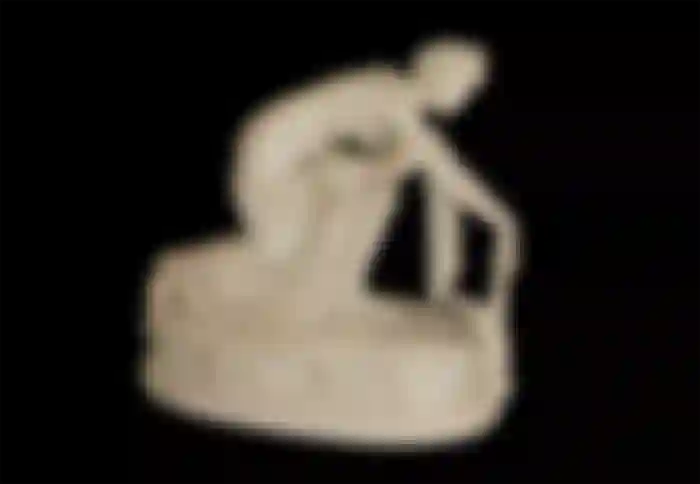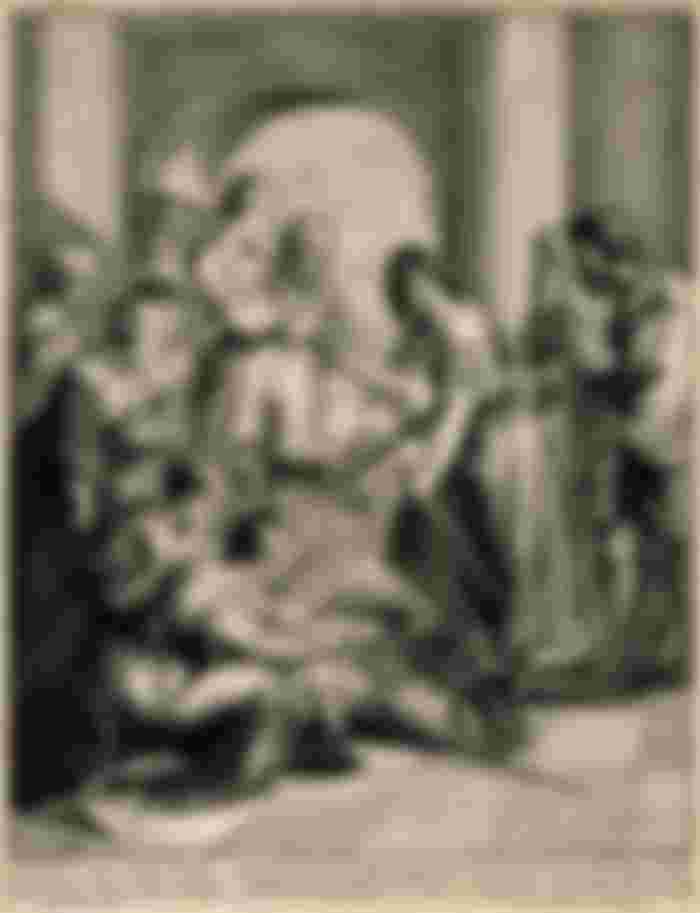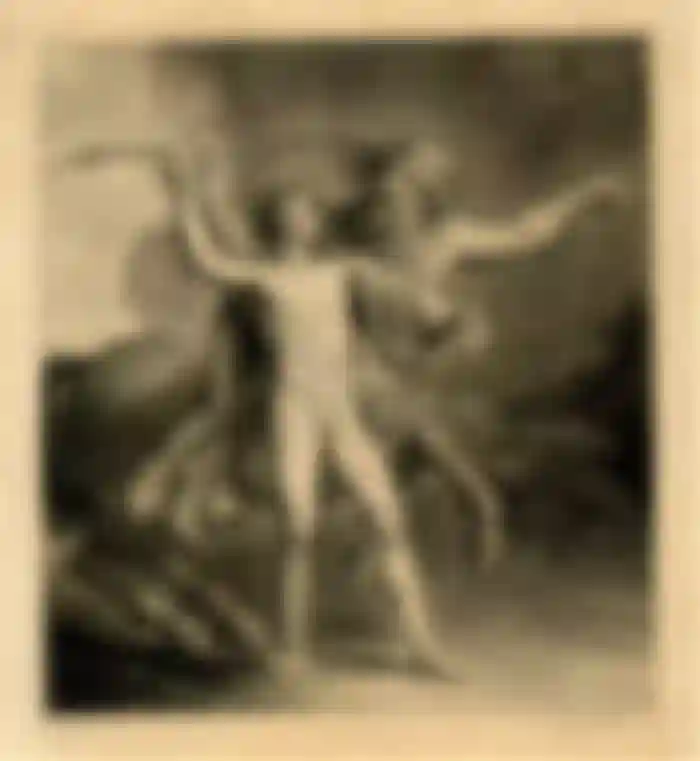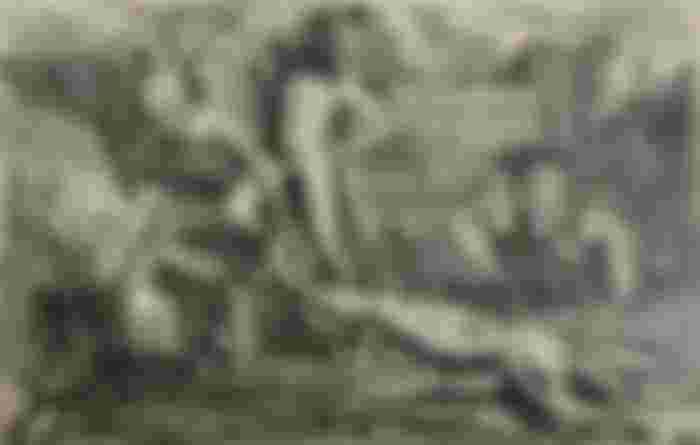
An Achilles' heel or Achilles heel is a weakness in spite of overall strength, which can lead to downfall. While the mythological origin refers to a physical vulnerability, idiomatic references to other attributes or qualities that can lead to downfall.

Origin:
Like most mythological heroes, Achilles had a complicated family tree. Achilles was the son of Peleus, a Greek king, the mortal king of the Myrmidons–a people who, according to legend, were extraordinarily fearless and skilled soldiers. His mother was Thetis, a Nereid, a sea nymph or goddess.
Zeus, the king of the gods and Poseidon, god of the sea, had both fallen in love with Thetis and were rivals for her hand in marriage. However, the gods were warned of a prophecy that Thetis would have a son who would grow up to be greater than his father. Worried by this, Zeus arranged for Thetis to marry a mortal man so that her child couldn’t challenge his power. In another version of the story, Thetis rejects Zeus’s advances and a furious Zeus decrees that she will never marry a god. Either way, Thetis ends up married to the mortal Peleus and Achilles is born.
According to myths and stories composed long after the Iliad, Thetis was extraordinarily concerned about her baby son’s mortality. She did everything she could to make him immortal: She burned him over a fire every night, then dressed his wounds with ambrosial ointment; and she dunked him into the River Styx,(the rivers that runs through the underworld) whose waters were said to confer the invulnerability of the gods. However, she gripped him tightly by the foot as she dipped him into the river–so tightly that the water never touched his heel. As a result, Achilles was invulnerable everywhere but there.


Early life:
When Achilles was 9 years old, a seer predicted that he would die heroically in battle against the Trojans. On hearing this, Thetis disguised him as a girl and sent him to live on the Aegean island of Skyros. To be a great warrior was Achilles fate, however, and he soon left Skyros and joined the Greek army. In a last-ditch effort to save her son’s life, Thetis asked the divine blacksmith Hephaestus to make a sword and shield that would keep him safe. The armor that Hephaestus produced for Achilles did not make him immortal, but it was distinctive enough to be recognized by friend and foe alike.


At some point, Achilles mother Thetis abandons her husband and son to return to live with the sea nymphs when Achilles is still young. Needing some help raising Achilles, Peleus sends him to be educated by a centaur named Chiron.
Centaurs, who have the upper body of a human and the lower body and legs of a horse, are often represented in Greek art as violent and savage creatures, but Chiron was known for his wisdom and had educated other heroes including Heracles and Jason.
Trojan War:
According to legend, the Trojan War began when the god-king Zeus decided to reduce Earth’s mortal population by arranging a war between the Greeks and the Trojans. He did this by meddling in their political and emotional affairs. At Achilles parents wedding banquet, Zeus invited the prince of Troy, a young man named Paris, to judge a beauty contest between the goddesses Hera, Athena and Aphrodite. Each of the goddesses offered Paris a bribe in exchange for his vote. Aphrodite’s was the most alluring: She promised to give the young prince the most beautiful wife in the world. Unfortunately, the wife in question–Helen, the daughter of Zeus–was already married to someone else: Menelaus, the king of Sparta. At Aphrodite’s urging, Paris went to Sparta, won Helen’s heart and took her (along with all of Menelaus’ money) back to Troy.
Menelaus vowed revenge. He assembled an army of Greece’s greatest warriors, including Achilles and his Myrmidons, and set off to conquer Troy and get his wife back. A war which lasted for 10 bloody years.
The Trojan War has been going on for nine years. Achilles has led one battle after another. He has met with great success in fact, he is undefeated in battle–but the war itself has reached a stalemate.
However there was an internecine quarrel between this hero and Agamemnon, the leader of the Greek armies and Menelaus brother. Agamemnon had taken as a concubine a young Trojan woman named Chryseis. Chryseis father, a priest of the god Apollo, tried to buy his daughter’s freedom, but Agamemnon mocked his entreaties and refused to release the girl.
Enraged, Apollo(Greek god of healing arts and knowledge) punished the Greek armies by sending a plague to kill the soldiers one by one. As his ranks thinned, Agamemnon finally agreed to allow Chryseis to return to her father. However, he demanded a replacement concubine in exchange: Achilles wife, the Trojan princess Breseis.
Achilles did as his commander asked and relinquished his bride. Then, he announced that he would no longer fight on Agamemnon’s behalf. He gathered his belongings, including the armor Hephaestus had made, and refused to come out of his tent.
With the Greeks greatest warrior off the battlefield, the tide began to turn in favor of the Trojans. The Greeks lost one battle after another. Eventually, Achilles’ best friend, the soldier Patroclus, was able to wrangle a compromise: Achilles would not fight, but he would let Patroclus use his powerful armor as a disguise. That way, the Trojans would think that Achilles had returned to battle and would retreat in fear.
The plan was working until Apollo, still in agitation about Agamemnon’s treatment of Chryseis and her father, intervened on the Trojans’ behalf. He helped the Trojan prince Hector to find and kill Patroclus after mistaking Patroclus for Achilles.
Achilles is determined to avenge Patroclus’ death at any cost and announces that he is ending his anger against Agamemnon and will re-join the fighting. The two sides meet in battle and Hector waits outside the city gates, ready to fight Achilles.
Despite a breathtaking fight which Achilles later confessed was his toughest fight; Hector was no match as Achilles plunges his spear into Hector's Neck
As he lies dying, Hector appeals to Achilles to return his body for cremation – a request that is heartlessly refused – and with his last breath he prophesies Achilles’ own death at the hands of the Trojan prince Paris.

Achilles, with his lust for revenge still not satisfied, deliberately mistreats the body of Hector, tying him to his chariot and dragging him behind in the dirt as he drives back to the Greek camp.
Eventually Hector’s father Priam, with the assistance of the god Hermes, makes the dangerous journey to the Greek camp to see Achilles and beg for the return of his son’s corpse for burial, then said:
I have endured what no one on earth has ever done before – I put to my lips the hands of the man who killed my son.
After a lot of pleading Achilles eventually agrees to release Hector's body. As Dawn breaks Priam returns to Troy with Hector's body.

Death:
According to later legends the warrior returned to Troy after Hector’s funeral to exact further revenge for Patroclus death. However, still-vengeful, Apollo told Hector’s brother Paris that Achilles was coming. Paris, who was not a brave warrior, ambushed Achilles as he entered Troy. He shot his unsuspecting enemy with an arrow, which Apollo guided to the one place he knew Achilles was vulnerable: his heel, where his mother’s hand had kept the waters of the Styx from touching his skin. Achilles died on the spot, still undefeated in battle.








This article is very sweet. This passage is about target war.it is the most memorable story of the world. Thank you for sharing this information.